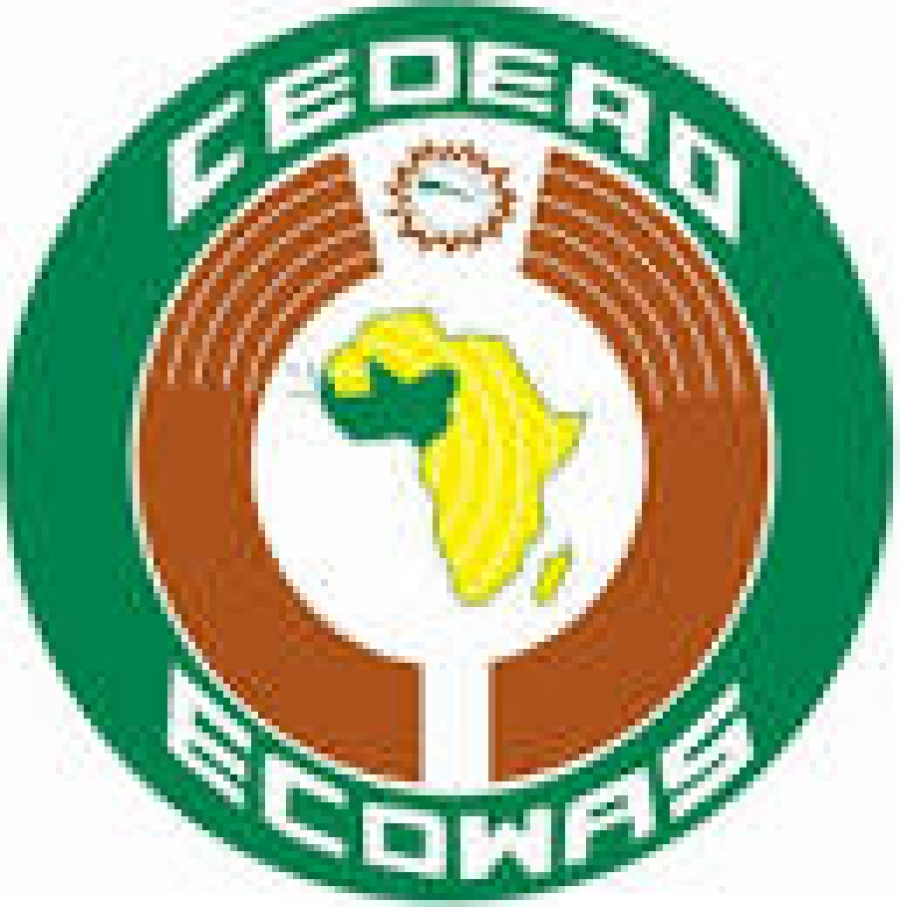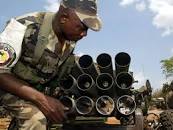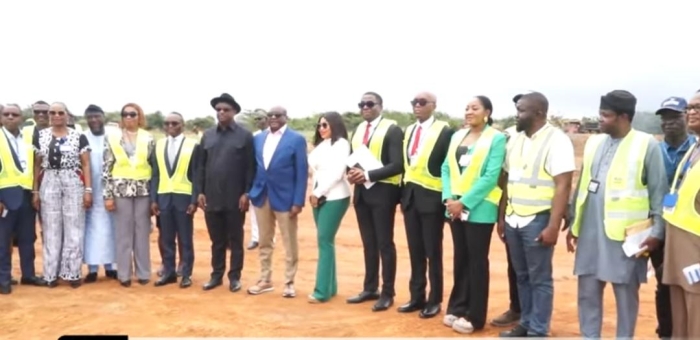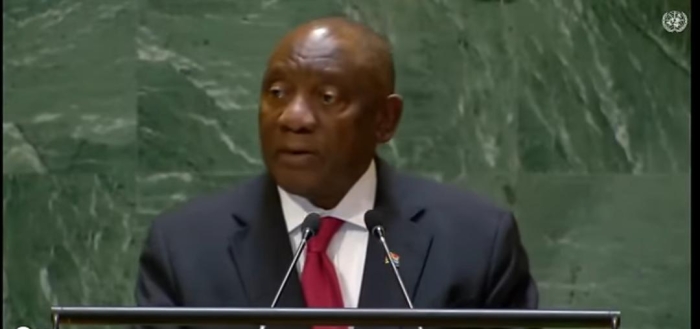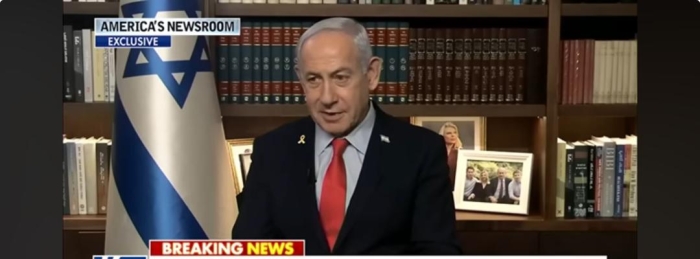Maiga was doubtful of Burkina Faso and Mali's ability to repel such an incursion through the use of military force, but he spoke to the urgency with which they responded. Maiga previously served as special adviser to the prime minister of Mali between two military coups that took place there in 2020 and 2021. They believe that ECOWAS may potentially invade their nations if it were to successfully put an end to the coup in Niger, according to Maiga. Therefore, it is also for their security and benefit. The coup in Niger, however, "if it succeeds," Maiga argued, "I think that other countries should start fearing that something similar will happen."
Although the Sahel is not the only location where the situation in Niger has high stakes, domestic and local problems are ultimately to blame. Niger is home to a plethora of resources, notably uranium, which is a key export to European countries like former colonizer France. This is true despite the awful living circumstances in which the majority of the country's roughly 25 million inhabitants reside. Since gaining its independence in 1960, Niger has alternated between military and democratic government. The most recent of these eras involved President Mohamed Bazoum, who looks to be in detention after being ousted last week. France has continued to have significant influence in Niger, notably through a military presence, as is the case in many post-colonial governments in West Africa.
As part of continuing counterterrorism operations against organizations operating in the larger Sahel area, particularly those connected to Al-Qaeda and the Islamic State terrorist group (ISIS), there are around 1,500 French troops stationed. Since French troops were driven out of the Central African Republic, Burkina Faso, and Mali, Niger has become more significant to France's military presence in Africa. Growing anti-French sentiment has been mirrored in each of these nations by a surge in support for Russia and the Wagner Group, the country's largest private military contractor, whose CEO, Yevgeny Prigozhin, applauded Tchiani's takeover.
Supporters of the uprising and the founding of the now-in-power National Council for the Safeguard of the Homeland were seen in Niger waving Russian flags and chanting anti-French phrases. The unrest has also been used by non-state actors, with the M62 Movement threatening to arrest citizens of Europe until foreign forces are evacuated from the nation.
Maiga, however, argued that the rebellion and the growth in anti-Western attitudes were not caused by Moscow's influence. Instead, he highlighted both local and regional aspects. It all stems from colonialism and neocolonialism in history, but recently, what has fueled anti-French feelings is the idea that France isn't treating its war on terrorism fairly, according to Maiga.
Even though Burkina Faso and Mali have struggled more in the battle against the Sahel-based insurgency than Niger has, the country's high level of insecurity persists despite a decade of French assistance. A "growing disenchantment with the democratic elite" in charge of the nation who "have not given the example of right and effective governance, addressing people's needs, and performing up to people's expectations," according to Maiga, is another concern for Nigerien citizens. J. Peter Pham, a fellow at the Atlantic Council and former U.S. special envoy for the Sahel and the African Great Lakes from 2018 to 2020, addressed these fundamental concerns as well.
In defense of himself, he asserted that he had consistently emphasized the fact that "the crisis of the region is, ultimately, one of state legitimacy, of the social contract between citizens and their governments—which, of course, implies an honest effort on the part of the latter to deliver security in its fullest sense, beginning with security from physical attacks by jihadist insurgents—as well as government forces—but also embracing some modicum of basic naveté" "The challenge for governments is that after decades of nonperformance, the patience of citizens is exhausted and many, manipulated by disinformation campaigns exploiting legitimate grievances, are willing to embrace the mirage of a quick fix," Pham said to the audience.
Like Maiga, he noted the rise in anti-French sentiment, which he too partly attributed to the rise of concerted disinformation campaigns. He also noted the legitimate differences in viewpoints between Washington and its European allies, even as they sought to work together to oppose Moscow's actions in Ukraine, thousands of miles away. Pham added, "I have long contended that while the United States and its European partners share many principles and objectives, they are not entirely aligned, particularly in the Sahel.
"We need to keep that in mind, and while we do not want open breaches while the Ukrainian conflict continues, we also should not be reluctant to ensure that our African partners, military forces, and civilian populations, are clear on the strategic motivations and objectives of our engagement."
Additionally, the United States has some 1,000 personnel in Niger, notably at an air base in Agadez, which has functioned as the hub for AFRICOM's (U.S. Africa Command's) drone operations. In 2017, four U.S. activities there attracted attention from across the world.
Special Forces and four members of the Nigerien Armed Forces were murdered in an ambush, according to the Greater Sahara branch of ISIS. The current Islamist danger is currently being overshadowed by international concerns, according to an AFRICOM spokeswoman who told Newsweek that "AFRICOM is continuing to monitor the situation in Niger and statements made by officials, including statements from ECOWAS and neighboring countries."
Major General Salifou Modi, who served as the defense chief of Niger until he was ousted by President Bazoum in March, visited Mali and Burkina Faso to strengthen ties between the two nations as the defense chiefs of active ECOWAS member states met to discuss their response to the situation in Niger, including the potential use of force. Because of their ongoing insurgency problems, Burkina Faso and Mali may not be able to mount a serious military challenge to an ECOWAS intervention against Niger, but Pham noted that "they are trying to signal their political commitment, despite their lack of actual capacity."
Such operations by ECOWAS have a history that dates back to 1990 when the West African alliance sent soldiers to Liberia to protect the government from civil conflict. However, this effort, like many that came after it, had conflicting outcomes; in 2003, Liberia's civil war flared up once more, prompting a second intervention. The recent military coups in Burkina Faso and Mali, as well as the military coup in Guinea in 2021, which joined Algeria in opposing involvement in Niger, have all weakened ECOWAS' track record.
However, Ovigwe Eguegu, a policy analyst at the think tank Development Reimagined, cautioned that "intervening has never been this dicey" as it is in the case of Niger, since it represents the first time two distinct states, themselves suspended members of ECOWAS, have promised to respond to such action with force. "That means this is no longer an intervention," Eguegu said to Newsweek. "We now have a war in West Africa the moment forces from Nigeria or Chad enter into Niger.
This will be a conventional conflict since these countries have standing conventional armies rather than militant organizations. He also cautioned that "West Africa, particularly the Sahel region, is not in the condition to deal with the war," in part due to the persistent threat posed by militant groups and the inability of bordering states to handle the inevitable mass flow of refugees that would result from such a protracted conflict.


